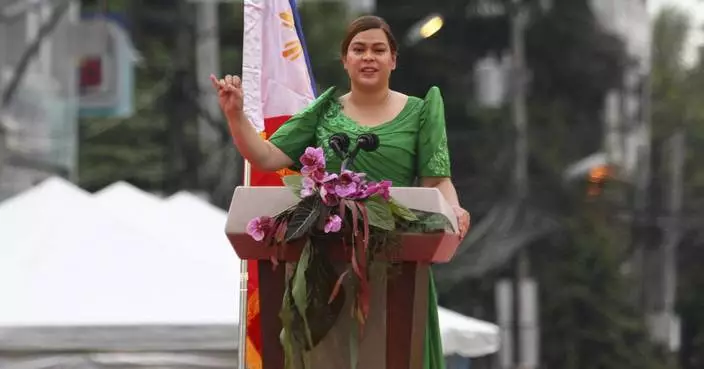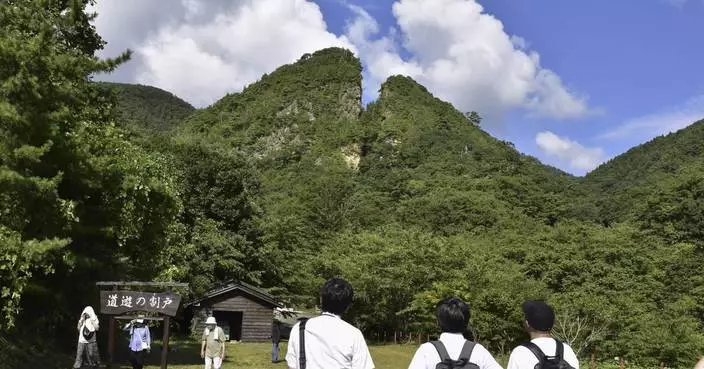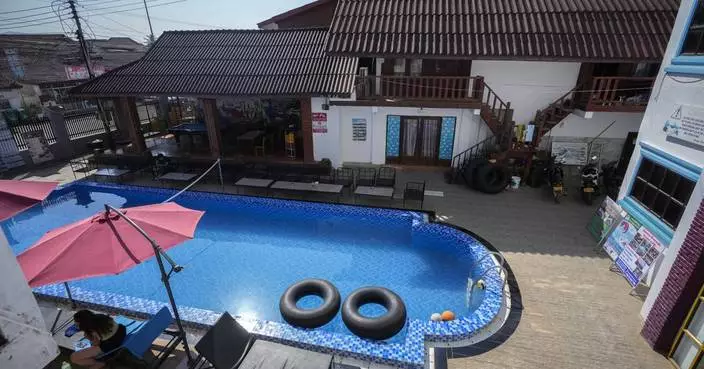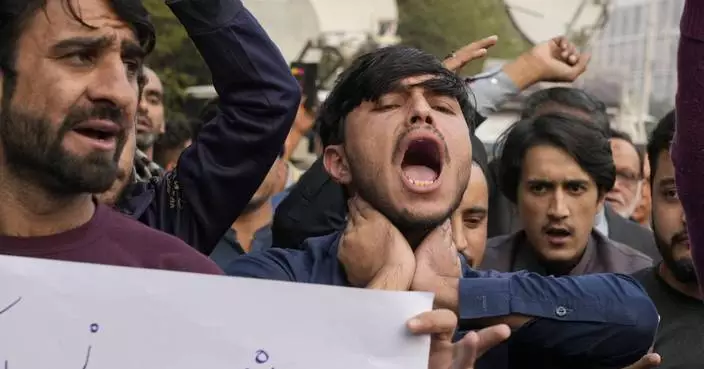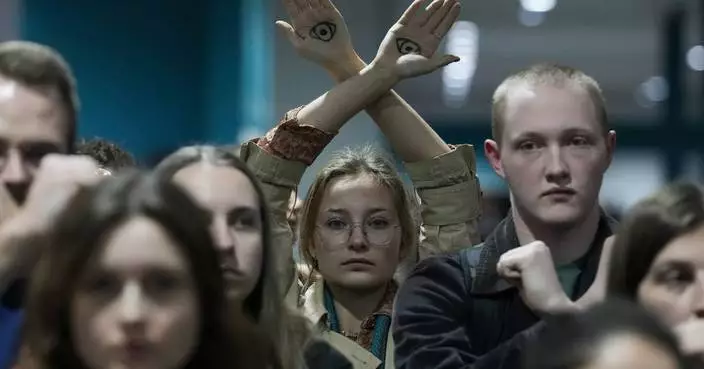LONDON (AP) — Double Olympic champion Alistair Brownlee announced his retirement from triathlon at the age of 36 on Thursday.
Brownlee won gold medals in London in 2012 and Rio de Janeiro in 2016, with his younger brother, Jonny, making the podium on both occasions. The siblings' exploits helped to push triathlon into the mainstream in Britain, with current Olympic champion Alex Yee of Britain crediting them as inspirations.
Alistair Brownlee was also world champion in 2009 and 2011, and a four-time European champion.
He wrote on X it was “time to close this chapter.”
“This marks my transition from professional triathlon, a moment approached with both dread and excitement in equal measure,” he wrote.
Brownlee said he was excited to try new challenges and had some “projects I’m eager to tackle.”
But he knew his time as an elite triathlete was over.
“It has got more difficult for me,” he said in an interview published on the website of Britain's Olympic team. “I can’t do anywhere near the training that I used to be able to do. So I also found it hard at times being on the start line, knowing that I’m not prepared to the level that I’d like to be.
“And I’m older, I’m 36. I’ve done it for a long time and there’s a lot of other things I want to do with my life.”
AP sports: https://apnews.com/sports

FILE -Britain's Alistair Brownlee, poses for the media with his gold medal for winning the men's ITU World Championship Series Triathlon race in London, Aug., 7, 2011. (AP Photo/Alastair Grant, File)
SEOUL, South Korea (AP) — South Korea’s government said Saturday it will not attend a memorial service near Japan’s Sado Island Gold Mines due to unspecified disagreements with Tokyo over the event, which stirred longstanding tensions over the abuse of Korean forced laborers at the site before the end of World War II.
The decision marked a rare display of friction between the countries since the 2022 inauguration of South Korean President Yoon Suk Yeol. Yoon has prioritized improving relations with Japan following years of disputes over their bitter history and solidifying three-way security cooperation with Washington to counter North Korean nuclear threats, but has faced accusations at home that he was neglecting the suffering of Korean survivors.
South Korea’s Foreign Ministry said in a statement it was impossible to settle the disagreements between both governments before the planned event near the mines on Sunday. It didn't specify what the disagreements were.
Japanese officials had no immediate comment.
Some South Koreans had criticized Yoon’s government for throwing its support behind an event without securing a clear Japanese commitment to highlight the plight of Korean laborers.
South Korean sentiment over the event worsened after the Japanese government said this week it would send Akiko Ikuina, a parliamentary vice minister at the country’s Foreign Ministry, to the event. Ikuina had reportedly visited Tokyo’s controversial Yasukuni Shrine following her election as a lawmaker in 2022. The shrine honors the country’s about 2.5 million war dead, including convicted war criminals. Japan’s neighbors view the shrine as a symbol of the country’s past militarism.
There were also complaints over South Korea agreeing to pay for the travel expenses of Korean victims’ family members who were invited to attend the ceremony.
Ties between Seoul and Tokyo have long been complicated by grievances related to Japan’s brutal rule of the Korean Peninsula from 1910 to 1945, when hundreds of thousands of Koreans were mobilized as forced laborers for Japanese companies, or sex slaves at Tokyo’s military-run brothels during World War II. Many forced laborers are already dead and survivors are in their 90s.
Historians say hundreds of Koreans were forced to labor at the Sado mines under abusive and brutal conditions during World War II. Japan’s government has said Sunday’s ceremony will pay tribute to ‘all workers’ who died at the mines, without specifying who they are. Critics saw this as part of a persistent policy of whitewashing Japan’s history of sexual and labor exploitation before and during the war.
The 16th-century mines on the island of Sado, off the western coast of Niigata prefecture, operated for nearly 400 years before closing in 1989 and were once the world’s largest gold producer. The mines were designated as a UNESCO World Heritage site earlier this year after Tokyo and Seoul settled a yearslong dispute. South Korea withdrew its opposition to the listing after Japan agreed to acknowledge Korean suffering more clearly in the site’s exhibition and to include Koreans in a memorial ceremony.
In 2023, Yoon took a major step toward improving ties with Japan that had deteriorated for years over historical grievances and trade disputes, by announcing a plan to compensate Korean forced laborers from the colonial period without requiring contributions from Japanese companies.
Yoon’s plan, which relies on money raised in South Korea, drew an immediate backlash at home from former forced laborers and their supporters, who had demanded direct compensation from the Japanese companies and a fresh apology from the Japanese government.
__ AP writer Mari Yamaguchi in Tokyo contributed.
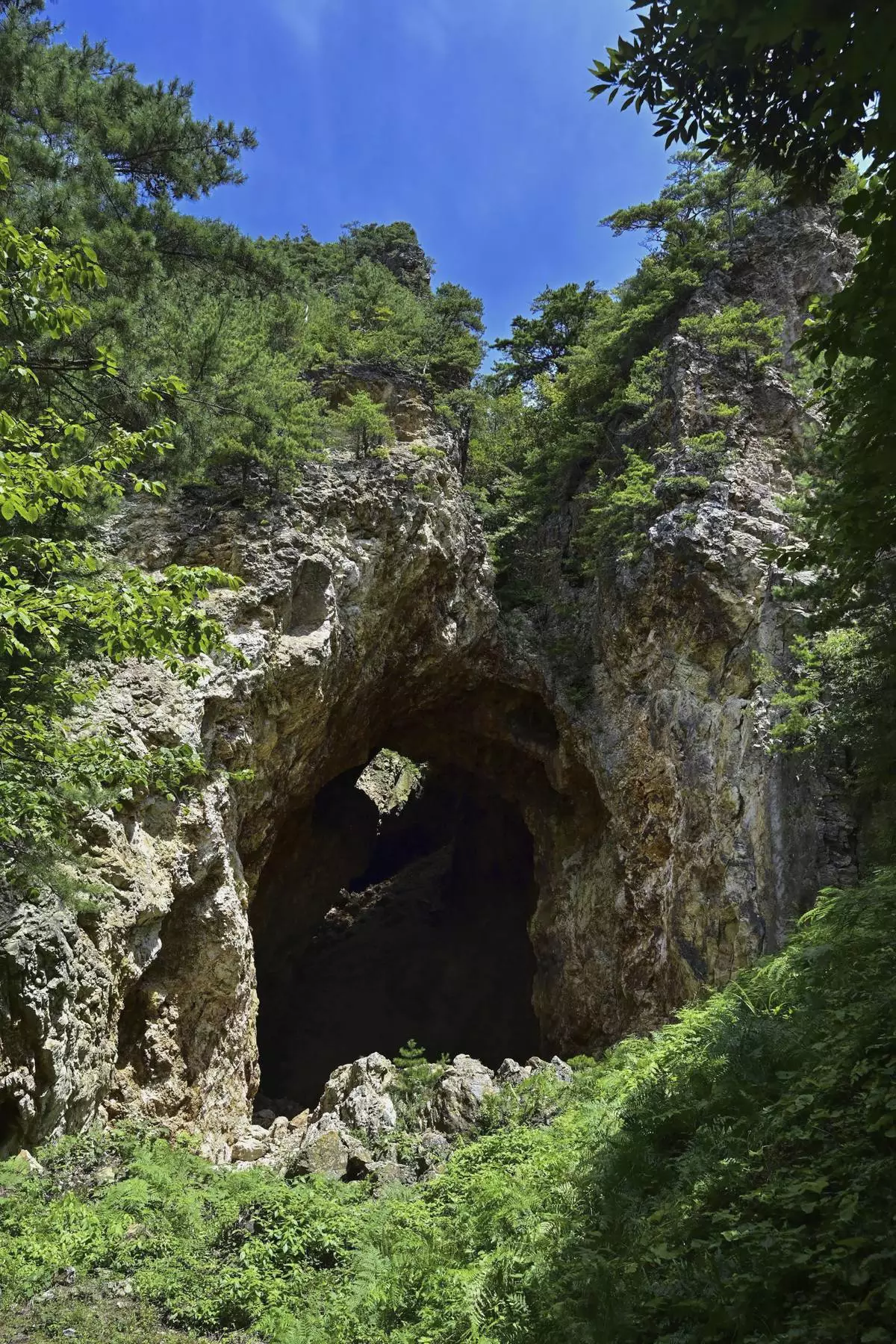
Remains of Japan’s Sado gold mine are seen on Sado Island, northern Japan, on Aug. 19, 2021. (Keiji Uesho/Kyodo News via AP)





